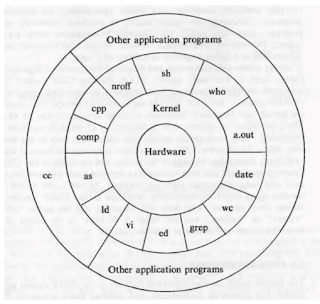Operating System Functionalities
What is Operating System?
Operating system can be defined as an interface between user and the hardware. That means it provides an environment to the user so that, the user can perform it's task in efficient way.
Operating System Functionalities
Generally the Computer System composed of Hardware and Software. But the Hardware can only understand the machine level language (or) machine code which is in the form of 0's and 1's, that cannot understand by the normal user.
So to perform the user queries, we need a system which can act as an intermediary and manage all the processes and resources present in the system. So we use operating system to perform the queries given by the users.
1. File Management
3. Process Management
4. Memory Management
5. Job Accounting
1. File Management:-
An operating system’s (OS) primary function is to manage files and folders.
Operating systems are responsible for managing the files on a computer. This includes creating, opening, closing, and deleting files. The operating system is also responsible for organizing the files on the disk.
2. Device Management:-
Operating systems provides essential functions for managing devices connected to a computer. These functions include allocating memory, processing input and output requests, and managing storage devices. This device could be a keyboard, mouse, printer, or any other devices you may have connected.
The operating system does the following tasks:
- Allocating and deallocating devices to different processes.
- Keeps records of all the devices attached to the computer.
- Decides which device to be allocated to which process and for how much time.
3. Process Management:-
The operating system's responsibility is to manage the processes running on your computer. The operating system ensures that the programs running on your computer should be compatible. It's also responsible for enforcing program security, which helps to keep your computer safe from potential attacks.
The operating system manages processes by doing the following task:
- Allocating and deallocating the resources.
- Allocates resources such that the system doesn’t run out of resources.
- Offering mechanisms for process synchronization.
4. Memory Management:-
One of the most critical functions of an operating system is memory management. This is the process of keeping track of all different applications and processes running on your computer and all the data they're using. It ensures that no application or process takes up too much space and slows down your computer. The operating system can move data around and delete files to make more space.
5. Job Accounting:-
Operating systems keep track of which users and processes use how many resources. This information can be used for various purposes, including keeping tabs on system usage, billing users for their use of resources, and providing information to system administrators about which users and processes are causing problems.
The operating system does the following tasks:
- Keeps record of all the activities taking place on the system.
- Keeps record of information regarding resources, memory, errors, resources, etc.
- Responsible for Program swapping(in and out) in memory.
